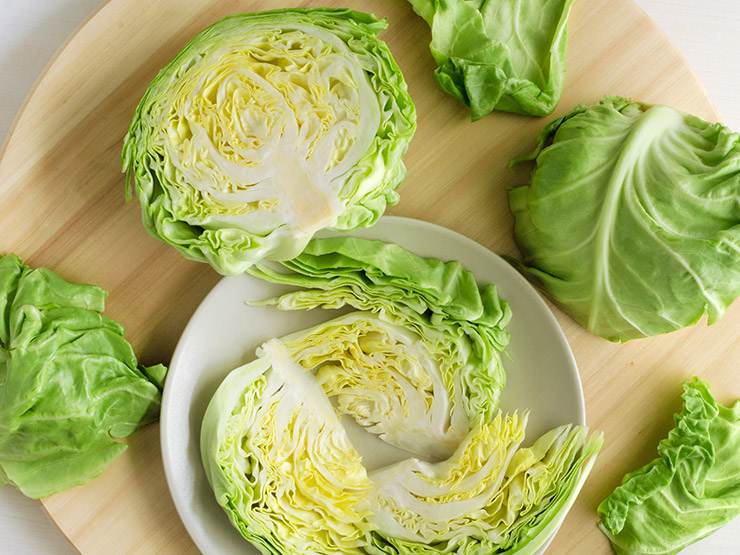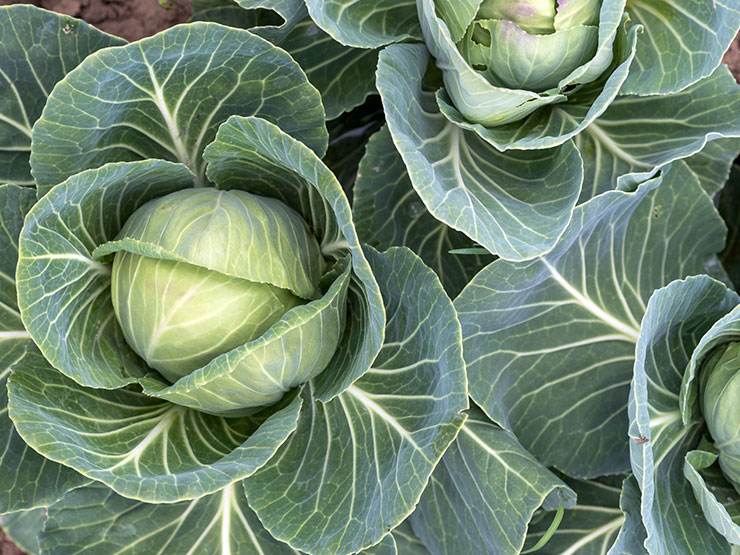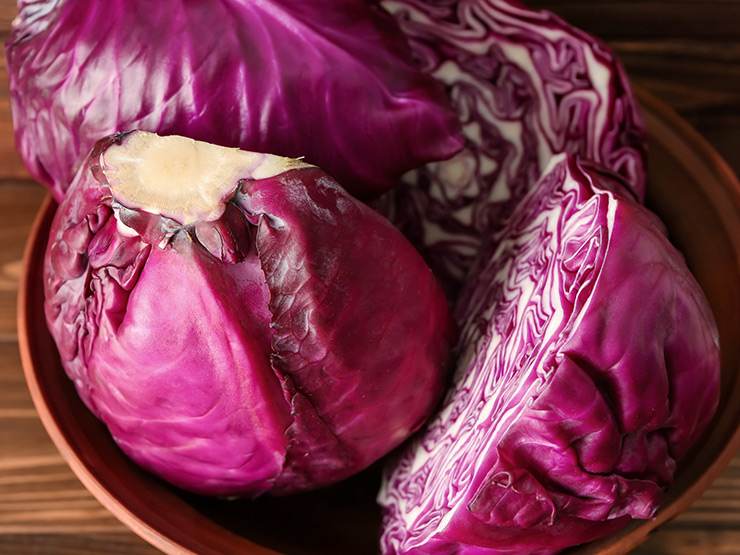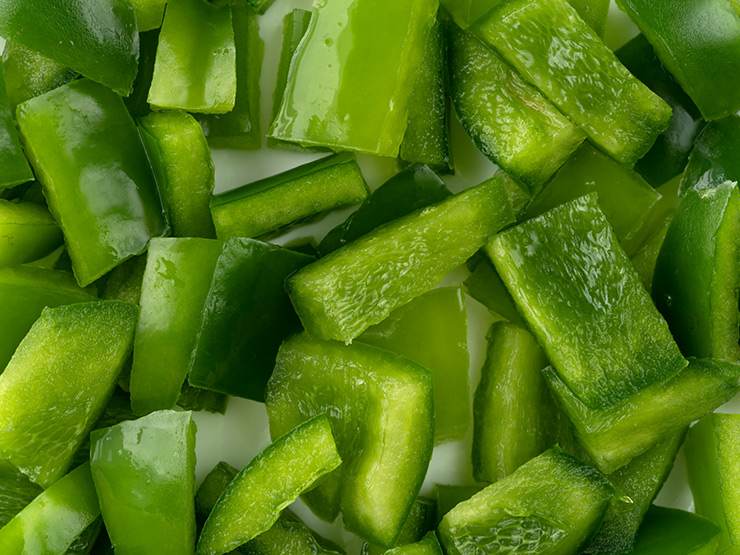[ad_1]
If you’re into gardening, chances are you encountered the most prolific menace farmers face during the growing season.
Bingo, if you guessed birds!
Birds and leafy greens go hand in hand. Engorged by our feathered friends, leafy greens never usually grow to their prime; if necessary precautions aren’t taken.
Without a doubt, cabbages are going to make that list. I don’t know about you, but I am hands down on team cabbage. And why won’t I be?
They’re the perfect blend of crunch and earthiness. Not to forget the impeccable benefits that accompany the yumminess.
Ever since cabbage season began, I couldn’t help but wonder: Can birds eat cabbage?
If you can remove or process the oxalic acid in cabbages, feel free to feed it to your birds. Otherwise, don’t.
You’ll be surprised to know all the conflicting theories and suggestions I found during my research.
Without any further ado, let’s dive in!
Is Cabbage Safe for Birds?
The purpose of this section is to analyze some chemical compositions of cabbage and determine whether it is safe for consumption or not.
To begin with, let’s take a look at why most bird enthusiasts condemn cabbage as an unsafe vegetable. The culprit behind this is none other than oxalic acid!

If you’ve been keeping up with our blogs, you may already be familiar with oxalic acid.
Oxalic acid is the infamous antinutrient that gave birth to the love-hate relationship organisms have with some leafy greens like spinach. Oxalic acid is notorious for reducing mineral absorption and increasing the risks of kidney stones.
Having that said, let’s discuss the elephant in the room: Why do wild birds consume cabbage if the oxalate is harmful?
Is it because they cannot distinguish between toxic foods?
Not at all! On the contrary, birds have a powerful sense allowing them to discern the consumable from the toxin.
Consumption of food with oxalates depends on each bird’s gut. You may notice that not all birds in the wild consume cabbage.
Cabbage is on the list of vegetables with the lowest amount of oxalate (0.10 mcg), whereas spinach is on top of the list of high oxalate-containing foods!
One thing to note is that not all food with oxalates is harmful. Some may even do more good than harm.
What Are the Benefits That Cabbage Has to Offer?
Considering the plethora of cabbages available, in this section, we will solely focus on the nutritional value of the widely available variety of cabbage: Green Cabbage.

Green cabbage is jam-packed with nutrients that will surely make you forget about the oxalates present in them!
Here’s a thorough list of all the nutritional benefits cabbage has to offer:
- Vitamin C and K
- Trace Minerals – Iron, Manganese and Copper
1. Vitamin K
Vitamin K provides essential amino acids that go into making various proteins required for blood clotting and building bones. Apart from this, vitamin K aids cognitive health as well.
Cabbage contains up to 85% of RDI Vitamin K per cup.
2. Vitamin C
Vitamin C is the ultimate antioxidant required for almost everything. Here are the five benefits of vitamin C:
- Boosts antioxidant levels
- Lowers blood pressure
- Protects against gout attacks
- Improves iron absorption
- Reduces the risk of dementia and prevents cognitive deterioration.
Green cabbage consists of 54% of RDI Vitamin C per cup. A deficiency of Vitamin C can lead to frequent diseases.
3. Trace Minerals
Trace minerals already exist in abundance, but who doesn’t need a little pick-me-up once in a while? Cabbages provide just that.

a. Iron
Iron is a necessary mineral the body needs for growth and development. Raw cabbage contains nearly 0.41mcg of iron per cup. Here are a few requirements for iron:
- Reduces tiredness and fatigue
- Aids normal cognitive function
- Supports muscle growth and body development
- Boosts red blood cell production
A deficiency of iron can lead to anemia and egg-binding.
b. Manganese
Manganese contributes to many bodily functions, including the metabolism of amino acids, cholesterol, and carbohydrates. Green raw cabbages contain 10% of RDI per cup.
Here’s a detailed list of why your birds will require manganese:
- Healing wounds
- Providing antioxidants
- protects the nervous system
- Maintains adequate levels of other electrolytes
Some symptoms of manganese deficiency may include neurological disorders, visual health, muscle pain, twitching, and cramps.
c. Copper
Copper has a vital role in several functions. Some of these roles include:
- Activates the immune system
- Increase absorption of iron
- Regulates the heart rate and blood pressure

Cabbage contains almost 0.11mg of copper. Without copper, birds would face low bone density, low white blood cell count, and thyroid problems.
Of all the variety of cabbages out there, red cabbages far excel with their nutritional content.
Having all the benefits jotted down, it’s time we check out ways to serve cabbage to our feathered friends.
Should You Feed Birds Raw or Cooked Cabbage?
Although it’s advisable only to feed our birdies the freshest fruits and vegetables, that isn’t the case for cabbages.
To remove the oxalate, you should blanch the cabbage leaves. However, this may also strip the cabbage from some of its nutrients.
Does this mean raw cabbage needs shunning altogether? No, raw cabbage is lower in oxalates compared to the oxalate content in other vegetables like carrots and tomatoes.
No matter what way it is prepared, your bird will not be able to absorb the nutrients for them to be beneficial. Hence, it is up to you whether you wish to serve the cabbage raw or cooked.
What Are the Alternatives to Cabbage?
Considering that no matter how cabbage is prepared, our birdies still won’t receive the nutrients to their fullest potential, diminishing the purpose of adding cabbage to their diet.
Hence here’s a list of foods that will not only provide the same nutritional value as cabbage; but also spares you all the hassle of oxalates!

- Bell Peppers – They provide the perfect crunch along with being a good source of Vitamin C.
- Parsley – It is the best alternative in my books as it provides both Vitamin C and Vitamin K.
- Green Peas – They are an impeccable source of iron and Vitamin K.
- Nuts and Seeds – Do we even have to talk about the holy grail of bird diet?
Each alternative is suited to meet the needs of nutrients found in cabbages. None of these ingredients contain harmful chemicals like oxalates.
Frequently Asked Questions
Let’s answer some of the popular questions that surround cabbage and birds. Let’s bust some myths in this section, shall we?
Can Birds Eat Raw Cabbage?
Birds can eat raw cabbage. However, due to the amount of oxalate in cabbages, it’s best to consume them in moderation.
Don’t forget to check in with your vet before letting your bird consume anything new.
Can Birds Eat Cooked Cabbage?
Birds can eat plain cabbage that is boiled or blanched with nothing else added to them. They are much safer than raw cabbage.
However, cooking cabbage may reduce some of its nutritional value. If it’s the particular nutrition in cabbages you’re looking for, don’t forget to check out the alternative section mentioned above.
Can Birds Eat Cabbage Leaves?
All parts of the cabbages are edible. Some parts may be high in oxalic acid, but once again see how your birds react to it or consult your vet.
Can Birds Eat Green Cabbage?
Green Cabbage (also known as Savoy Cabbages) is widely available worldwide. And it retains healthy nutrients while having low oxalic acid content, yet consumption in moderation is advisable.
Hence, green cabbage is perfectly edible.
Can Birds Eat Purple Cabbage?
Purple or red cabbage has the highest amount of nutrition of all varieties of cabbages. It is chock full of Vitamin C and is on top of the list as a vegetable with the most RDI of Vitamin C.
If you intend to add cabbage to your bird’s diet, without a doubt opt for purple cabbage.
Can Birds Eat Chinese Cabbage?
Chinese cabbage (known as Napa Cabbage) is edible, just like all the other types. Once again, don’t forget to consult your vet before adding it to your bird’s diet.
Can Pet Birds Eat Cabbage?
Pet birds are more sensitive than birds in the wild as they aren’t exposed to all the elements. As I mentioned previously, the digestion of oxalic acid depends on gut strength.
Pet birds have weaker guts hence make sure to consult your vet beforehand.
Can Wild Birds Eat Cabbage?
Wild birds are already used to feeding on raw cabbage. However cooked cabbage is still safe for them.
Nonetheless, adding food with moisture in them to the birdfeeder can incubate microbes hence adding them to bird food chops will be the best option out there.
Final Remarks
If you ask me whether cabbage will be a part of my bird’s diet, my answer will be no. With all these alternatives available, who would want to go through the hassle that cabbages bring?
Having said so, it is up to you whether you want to add cabbage to your bird’s diet or not.
However, it is always necessary to consult your vet before adding anything. Besides, consumption in moderation is advisable.
[ad_2]
Source by [author_name]


